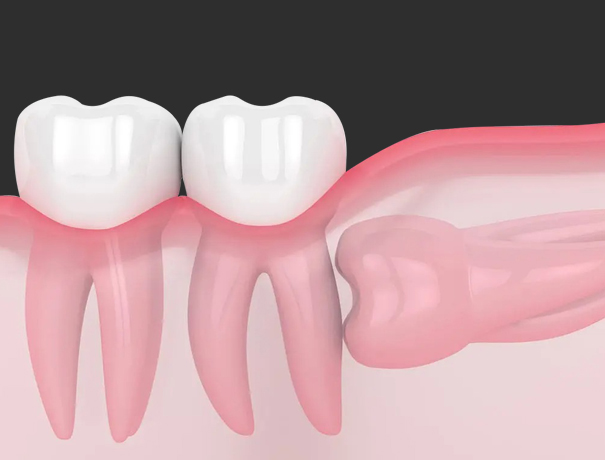
Expert Wisdom Teeth Extractions
Wisdom teeth are the last set of molars. Most people start to get their wisdom teeth when they are teenagers, though some teeth don’t come in until you are in your early twenties.
Wisdom teeth have a purpose. They are another set of molars, but more often than not they cause more problems than they are worth. Wisdom teeth can come in misaligned, facing any direction. They can even try to come in horizontally, growing into your other teeth. This can damage your nerves and even your jawbone.
How Do I Know If My Wisdom Teeth Need Removed?
- Wisdom teeth can become impacted, meaning they are stuck under the gums or completely hidden. This can lead to infection or the formation of a cyst that can damage surrounding teeth or roots.
- Wisdom teeth growing at different angles in the jaw can cause a change in bite alignment.
- Crowding or damage to existing teeth can occur when there is not enough room for wisdom teeth to come in properly.
- If wisdom teeth only partially emerge through the gums, it can create a breeding ground for bacteria, leading to gum disease and oral infection.
How Do I Relieve Wisdom Tooth Pain?
- Start by rinsing with saltwater
- Use peppermint essential oils or clover oil to help ease the pain
- Consider taking aspirin or an over-the-counter pain reliever
- Apply an ice pack or heating pad to your cheeks for relief
What Is An Impacted Wisdom Tooth?
What Should I Eat After Wisdom Teeth Removal?
Following the surgery, it’s important to eat soft and cool foods to reduce the risk of further harm. We recommend eating foods such as:
- Mashed potatoes
- Soups
- Ice cream
- Smoothies
- Yogurt
- Applesauce
As you recover, you should consider your pain level when deciding whether or not to reintroduce more solid foods into your diet.